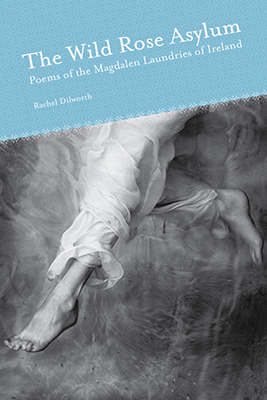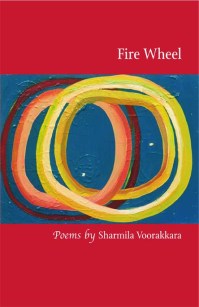Description
Winner of the 2008 Akron Poetry Prize
The poems of The Wild Rose Asylum offer a multi-faceted consideration of the historical phenomenon of Ireland’s Magdalen asylums, the largest and most controversial of which were run for 150 years, until 1996, by the Catholic Church. In poems that embrace both traditional and experimental forms, Rachel Dilworth’s work explores complex factors involved in the loss by thousands of Irish women of years of their lives, numerous aspects of their identities, and countless future possibilities to confinement and arduous unpaid laundry labor as “penitents” in these facilities for so-called “fallen” women. Pervaded by a cutting awareness of an incarceration of the spirit, as well as of the beauty and naturalness of so many women’s development being suppressed and denied, these poems navigate individual and collective voice and silences, the held and withheld and disappeared or ignored, with a grace and unflinching attention. Humane and wide-ranging, The Wild Rose Asylum is a researched act of witness to an issue rife with loss—poems that seek to be “bird enough to dive far/into the heart of it and bring up something.
Robert Penn Warren said, “Historical sense and poetic sense should not, in the end, be contradictory, for if poetry is the little myth we make, history is the big myth we live, and in our living, constantly remake.” The history behind the ravishing poems in Rachel Dilworth’s first book, The Wild Rose Asylum: Poems of the Magdalen Laundries of Ireland, is almost too much to be fathomed. Eschewing the stridency of political correctness and the well-intended pity of the confessional, Dilworth reaches beyond mere reportage or sensationalism to chronicle the institutionalization of supposedly “wayward” women in Ireland’s religious-run “Magdalen asylums,” and the maddening rationales of a society where women were all too often judged obedient or dangerous, servant or temptress, but ultimately expendable. The testimonies rendered here are stark yet fiercely lyrical, bearing witness to generations of lost women and their lost freedom: to Mary Norris, who sneaks to the toilet to piece together newspaper scraps she smuggles from the trash in order “to hold the world close;” and to young Bridget, so like the wild fuchsia, with its “bloodshine petal” and “amaranthine heart.” Amazingly, even in the midst of horror, beauty endures. The crushing litany of sexual violence in “Oh Rose—His Dark Secret Love” is all the more harrowing for its insistence upon precision and eloquence, until all that remains are the roses, standing in mute witness: “Red as cuts, as cheeks perspiring, / these blooms startle the bush that yields them.” From terza rima to the “Body Sonnets,” ballads to transcribed inventories, the poems of The Wild Rose Asylum give to the women of the Magdalen Laundries a voice that “sharpens the air.”
—Rita Dove




